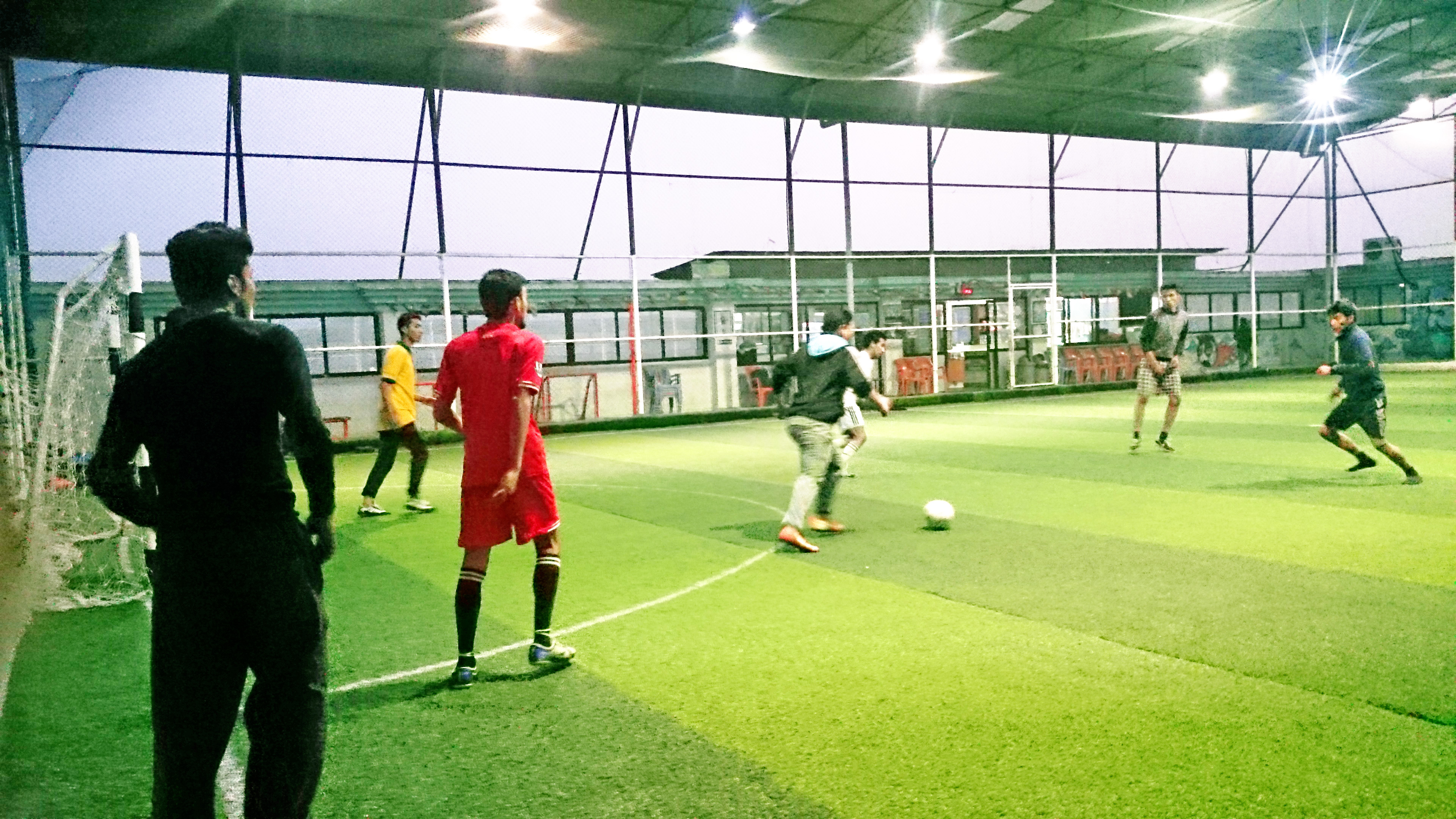City police order closure of futsal arenas
Kathmandu, January 14
The Metropolitan Police Range, Kathmandu, today ordered the closure of all futsal arenas operating in the capital until further notice.
Superintendent of Police Bishwo Raj Pokharel, who is also the spokesperson for the MPR, said the futsal arenas were being operated without registering with the government or following any code of conduct or standard operating procedures.
“There were also complaints galore from the locals about disturbance to the neighbourhood given no schedule of opening and closing hours of such arenas, charging fee on a whim, becoming a forefront for illegal activities, evading tax, gambling, drug abuse and binge drinking,” he told The Himalayan Times.
Operators have been verbally notified to close the arenas.
Many guardians had also sought the help of police to regulate the futsal arenas after their children allegedly became futsal addicts and started bunking schools and colleges.
According to MPR, the capital boasts of at least 51 futsal facilities. “Futsal delivers a quality football for good health, along with high level of entertainment.
But futsal arenas in the capital have not been found doing what they were supposed to do,” said SP Pokharel, adding, “Futsal area operators will be allowed to resume their business after they are regulated and get legal status.
Futsal has not been banned but needs to be regulated.”
Futsal is football played indoors in a limited space between two teams of five players each. In many countries, futsal is considered one of the safest ways of football skilldevelopment and entertainment, as it keeps children off the streets.
It originated in Uruguay in 1930 and spread to other countries. Futsal came into being in Nepal some six years back.
Meanwhile, futsal arena owners formed an ad hoc committee headed by Dhuku Futsal’s Raj Maharjan after the administration forced the closure of futsal arenas.
“It came to us as a surprise. We have been doing what the government should have done in sports and health sectors,” said former skipper of the national football team Hari Khadka, who is also the member secretary of the futsal committee.
“At a time when the government has not been able to invest in sports and health, futsal arenas have been helping people to lead a healthy lifestyle,” he added.
The committee members also met CDO Ram Krishna Subedi this afternoon.
“We found that he had been briefed about the negative impacts of futsal. We put our version and he has assured us of finding the right way to regulate futsal arenas,” added Khadka, who owns Samakhusi Futsal.
“We do not have any problem in accepting government’s decision to regulate futsal. We will help the government in this step,” he added.
Khadka, who has scored 13 goals in national team’s international matches and is the joint top scorer with Nirajan Rayamajhi, said, “As CDO Subedi has called a meeting of the representatives of the futsal
committee, police, registrar office and Internal Revenue Department (for PAN), we will wait and watch
for a couple of days, as we hope to find a way out through that meeting,” he said.






